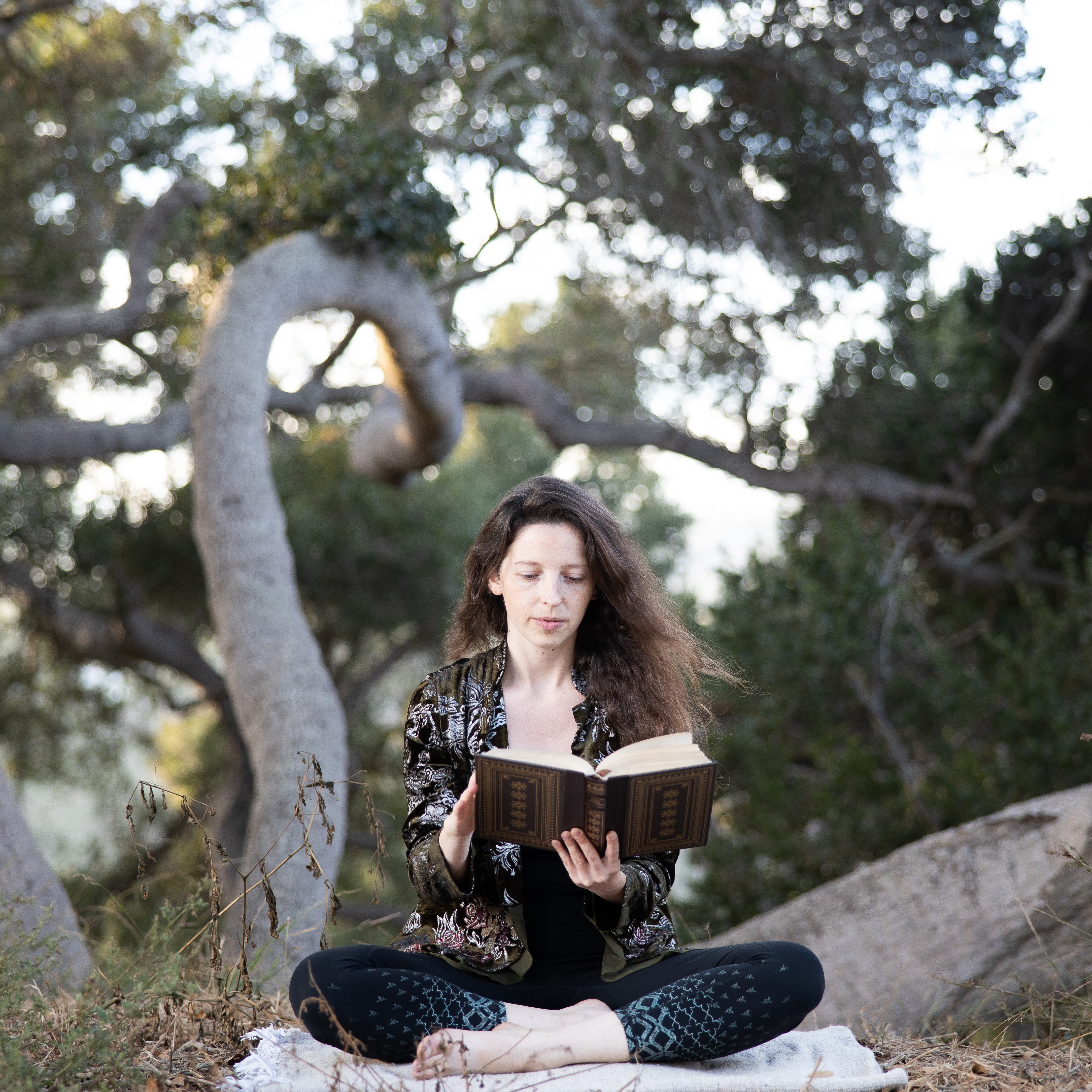Cultural Complexes and the Mythopoetic Imagination in the 21st Century: An Interview with Thomas Singer, Ph.D.
Dr. Thomas Singer will be giving a keynote presentation, “Portals to the Imaginal in a Digital Era: Cultural Complexes and the Mythopoetic Imagination in the 21st Century,” for Pacifica’s upcoming event, “Portals to the Imaginal: Re-Visioning Depth Psychology for the 21st Century,” on October 7-9, 2022. An immersive learning event in celebration of the campus re-opening of Pacifica. For more details, visit us here.
Read More
Posted in:
Mythology,
Education,
depth psychology,
mythological,
Pacifica Graduate Institute,
Spiritual
Having come through the pandemic as a strong community at Pacifica, there is a delight and a joy in convening once again on campus for the 2022-23 school year, which our reopening conference, “Portals to the Imaginal: Re-Visioning Depth Psychology for the 21st Century”, will celebrate. Emily Chow-Kambitsch, Co-Chair and Associate Core Faculty in our Mythological Studies program, will be presenting a paper on “Women’s Memoirs in Greek Tragedy,” as well as facilitating “Mythic Meditation: Labyrinth.” I’m delighted to be speaking to Emily about her work.
Angela: Let’s begin with the thing that first caught my eye and imagination, the labyrinth. I count visiting the labyrinth at Chartres Cathedral, cast in the colors of stained glass reflections, as one of the most beautiful experiences of my life. Yet that is a representation of the labyrinth that is far from the mysterious maze in which one might become lost, might never emerge, and beware the Minotaur lurking at the heart of it. Do you conceive of the labyrinth as a metaphor for the psyche, that when we explore within, we may expect to meet the mystery, become lost, and face what we fear? Why would anyone set foot into a maze they might not emerge from?
Read More
Posted in:
Mythology,
Education,
depth psychology,
meditation,
Pacifica Graduate Institute,
Spiritual
Dylan Hoffman, Ph.D., is a relatively new addition to the faculty of Pacifica’s Jungian & Archetypal Studies program. I’m excited to learn more about his perspective and teaching.
Angela: You began your career at Pacifica in our M.A./Ph.D. program in Jungian & Archetypal Studies (DJA). What attracted you to Pacifica, and in particular the study of Archetypes?
Read More
Posted in:
archetypes,
C.G. Jung,
Education,
depth psychology,
Pacifica Graduate Institute,
Spiritual,
Jungian & Archetypal Studies
Dr. Corbett serves as a professor of depth psychology at Pacifica Graduate Institute. He is the author of several books, the most recent of which is The God-Image from Antiquity to Jung. I am delighted to speak to him about his work with the God image in the context of Jung’s scholarship.
“The God-image described by religious traditions and sacred texts such as the Bible, which people may believe in without necessarily having experienced, might be intellectually and emotionally satisfying, but belief is not as convincing as a personal numinous experience. Such experiences can be understood psychologically without recourse to the dogma or doctrine of any specific tradition.” –Dr. Lionel Corbett, The God-Image from Antiquity to Jung
Read More
Posted in:
C.G. Jung,
Education,
depth psychology,
Pacifica Graduate Institute,
Spiritual
A blog post by Melissa Ruisz Nazario based on a webinar presented by Keiron Le Grice, Ph.D.
What is archetypal cosmology, and why might you want to study it? Check out the post Archetypal Cosmology, Part I: Beyond Outer and Inner Space for a more in-depth description that gives background on the field.
To summarize, archetypal cosmology is a new discipline but rooted in the ancient practice of astrology. It is based on the idea that the celestial bodies like the solar system’s planets and the sun and their relative configurations reflect the deep order of the psyche—the psyche being the totality of psychological experience, according to C.G. Jung.
Read More
Posted in:
The Psyche,
James Hillman,
archetypes,
Psychology,
soul,
depth psychology,
psyche,
humanities,
Pacifica Graduate Institute,
sacred,
cosmology,
symbolism,
Spiritual
A blog post by Melissa Ruisz Nazario based on a webinar presented by Keiron Le Grice, Ph.D.
Astrology is the ancient practice of looking at the relative positions of celestial bodies and their relationship and influence on earth, the natural world, and humans. [1] Depth psychology has to do with psychologies and therapies involving “the exploration of the subtle, unconscious, and transpersonal aspects of human experience.” [2]
Read More
Posted in:
The Psyche,
James Hillman,
archetypes,
Psychology,
soul,
depth psychology,
psyche,
humanities,
Pacifica Graduate Institute,
sacred,
cosmology,
symbolism,
Spiritual
A blog post by Melissa Ruisz Nazario based on a webinar presented by Susan Rowland, Ph.D.
“Depth psychology is a psychology of the creative imagination,” says Susan Rowland, Ph.D., Chair of Pacifica’s M.A. program in Engaged Humanities and the Creative Life. She explains that while depth psychology originated and continues to be a powerful form of psychotherapy, its devotion to the creative imagination makes it important beyond the consulting room.
Read More
Posted in:
Joseph Campbell,
archetypes,
Psychology,
soul,
depth psychology,
humanities,
Pacifica Graduate Institute,
sacred,
symbolism,
Spiritual
A blog post by Melissa Ruisz Nazario
In the preface to the thirtieth anniversary edition of her seminal book, Writing Down the Bones [1], first published in 1986, Natalie Goldberg explains why she thinks so many people want to write.
“I don’t think everyone wants to create the great American novel, but we all have a dream of telling our stories–of realizing what we think, feel, and see before we die,” she observes. “Writing is a path to meet ourselves.”
The “bones” Goldberg wants her students to write down is, in her words, “the essential, awake speech of their minds.” She acknowledges this is easier said than done: “But I also know that I can’t just say, okay, write clearly and with great honesty. In class, we try different techniques and methods. Eventually the students hit the mark, come home to what they need to say and how they need to say it.”
Read More
Posted in:
Joseph Campbell,
archetypes,
Psychology,
soul,
depth psychology,
sacred,
symbolism,
Spiritual
A guest blog post by Mary A. Wood, Ph.D., co-Chair of the M.A. Program in Engaged Humanities and the Creative Life at Pacifica Graduate Institute.
“The soul should always stand ajar, ready to welcome the ecstatic experience.” —Emily Dickinson
There are moments in life when time seems to stand still—moments when we find ourselves transfixed, and eventually transformed. These moments can be cosmic in scale, as reflected in the awe that we feel when beholding a rare solar eclipse, or an approaching storm. These moments may also be quite intimate, but no less moving, such as when we witness an animal emerging from hiding or when we hear an exquisite song. We recognize, and always remember these moments because they are announced by bodily sensations; we gasp, our hearts beat faster, and tears often flow. Our bodies tell us that the ordinary has given way to the extraordinary. These experiences are best described as “aesthetic,” as we find ourselves living, at least for a few moments, as creatures that are gloriously and achingly alive.
Read More
Posted in:
Joseph Campbell,
The Psyche,
James Hillman,
archetypes,
transformative,
C.G. Jung,
Psychology,
art,
soul,
depth psychology,
symbol,
mythological,
humanities,
sacred,
symbolism,
Spiritual
A blog post by Melissa Ruisz Nazario
At this time of year in the northern hemisphere, the earth’s axis orients away from the sun, temperatures cool, and many of us celebrate with loved ones some form of thankfulness and respite from work–modern iterations of our ancestors’ harvest festivals.
Though the concept of gratitude is also ancient, it has become a bit of a modern buzzword. So, is gratitude really as beneficial as the masses say it is? Actually, yes. Robert A. Emmons and Robin Stern, researchers known for their work in studying gratitude, reviewed studies on the subject and list several of the physical, emotional, and psychological outcomes of cultivating gratitude in “Gratitude as a Psychotherapeutic Intervention.” [1]
Read More
Posted in:
The Psyche,
archetypes,
transformative,
Psychology,
soul,
depth psychology,
mythological,
Spiritual,
resources













